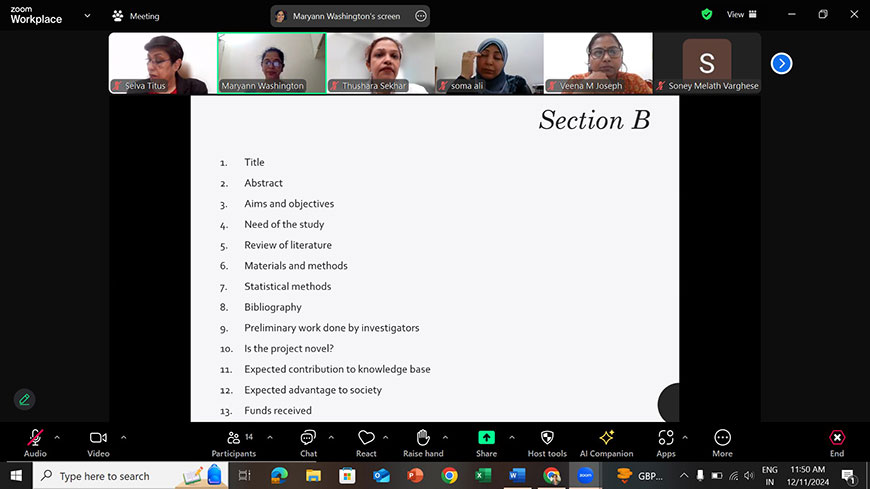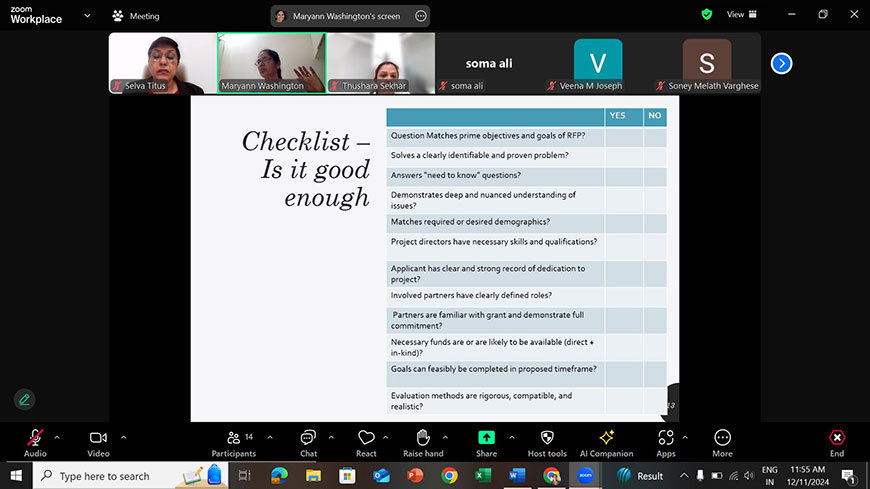The College of Nursing organized a Faculty Development Workshop on November 12, 2024, with Dr Maryann Washington as the keynote speaker. The workshop focused on Research Grants.
The main objectives of this session are to provide guidance on how to write a research proposal, understand its standard format, and identify the essential skills needed to craft a strong proposal.

Research funders assess proposals based on a comprehensive, integrated approach that demonstrates prioritization and genuinity. They look for a well-thought-out presentation that flows logically, shows natural progression, and clearly describes the project’s broad impact. Proposals should indicate wide participation and demonstrate the capacity and ability to succeed, along with strong local commitment and investment in the project. Funders also consider whether the proposal duplicates existing services and evaluate its accountability plans.

A research proposal should include the title, Principal Investigator, Co-Principal Investigator, and Project duration. It should specify the amount of grant aid, with 30% allocated for staff costs, alongside budgeting for tests, recurring activities, presentations, and publications.

Effective time management for a large research proposal requires clear goal setting and a proactive approach. Avoid procrastination by keeping tasks on track and setting specific goals. Define what needs to be completed, establish deadlines, and clarify the quality standards to meet. To optimize efficiency, categorize tasks by priority: A (Urgent and Important), B (important but less urgent), C (Urgent but not important), and D (Not urgent and not important). This structured approach helps ensure timely and high-quality proposal completion.
Dr. Maryann’s faculty development program on research grants was highly informative and engaging. It provided valuable insights into securing and managing research funding. Faculty members from the College of Nursing attended the session, which helped them understand grant writing strategies and proposal development. The program was a significant step toward advancing faculty skills in research grant acquisition and successful proposal crafting.

